7 city-building boardgames to play with friends and family
Building a city, or even an entire civilization, can be a fascinating adventure. In board games, this experience comes to life with every decision made, resource allocated, and strategy developed. These games put us in control of urban development, resource management, and social evolution, making everything depend on our choices.
Today, we highlight games that explore different ways to build civilizations, whether local neighborhoods, or even empires, leading nations toward progress. Each game features varied mechanics that bring challenges - strategy, planning, creativity -, while also providing fun for all kinds of players.
Furthermore, we highlight the educational benefits of each game, showing how they can help develop skills such as decision-making, organization, teamwork, and strategic thinking!
Flip City
- Era: Contemporary Urban Area
- 1 to 4 players
- Average Time: 30–45 min
- Recommended Age: 8+
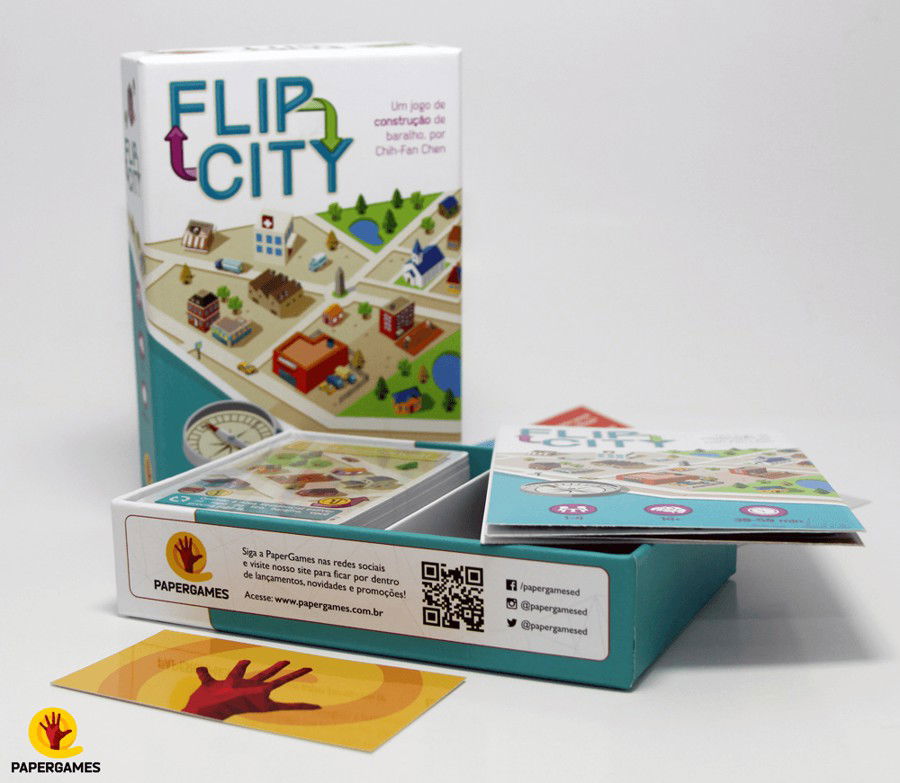
In Flip City, players take on the role of ambitious urbanists, striving to develop their city in the most efficient way. The game's unique feature is its "double-face deckbuilding" mechanic: each card can be rotated, or flipped, to offer new effects, adding strategic depth with simple decisions.
The game revolves around risk-reward decisions: drawing more cards can lead to victory... or urban chaos. It's both minimalist and dynamic, ideal for those who enjoy fast-paced games with impactful choices. If you'd like to learn more about the game, we have a complete guide: Link
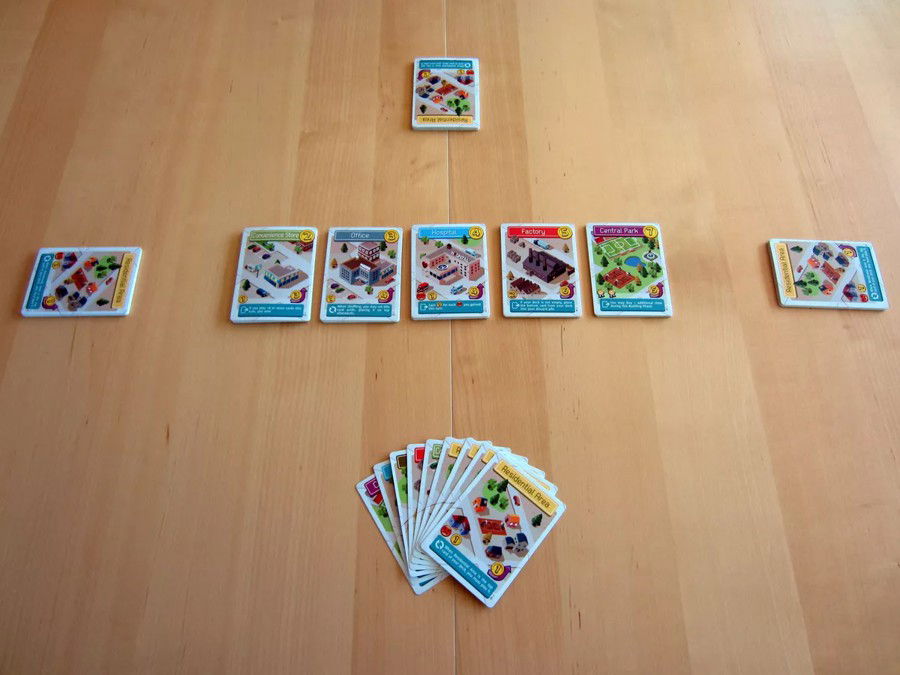
Game mechanics
Deckbuilding; Push-your-luck; Resource management.
Pedagogical tips
- Teaches concepts of urban planning and sustainable development;
- Stimulates probabilistic thinking and risk assessment;
- Encourages cause-and-effect analysis in dynamic systems.
Imhotep
- Era: Ancient Egypt
- 2 to 4 players
- Average Time: 40 min
- Recommended Age: 10+
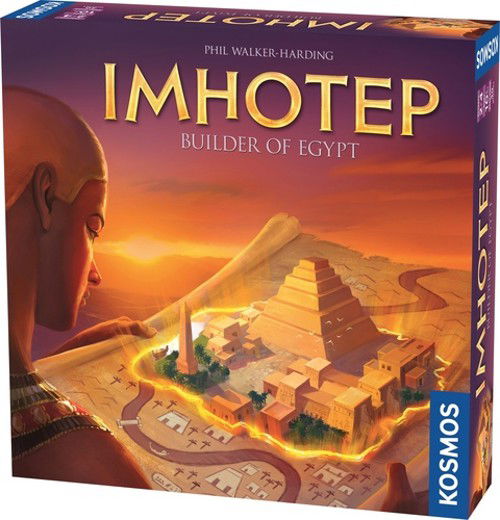
In Imhotep, players take on the role of architects from Ancient Egypt, vying for prestige by building pyramids, obelisks, and temples. Resources are ferried by boat to the construction sites, and the timing of each delivery is crucial to ensuring success.
It has simple rules, yet deep interactions; the game requires tactical awareness and anticipation of opponents' moves. The different buildings score points in unique ways, keeping you tense until the end. Check out our Imhotep Guide: Link
Game mechanics
Collecting Resources; Area Control; Interaction and Interfering with other Players.
Pedagogical tips
- Teaches architectural concepts in Ancient Egypt;
- Stimulates strategy based on timing and priorities;
- Encourages logical thinking and anticipating opponents' actions.
Stone Age
- Era: Prehistoric
- 2 to 4 players
- Average Time: 60-90 min
- Recommended Age: 10+
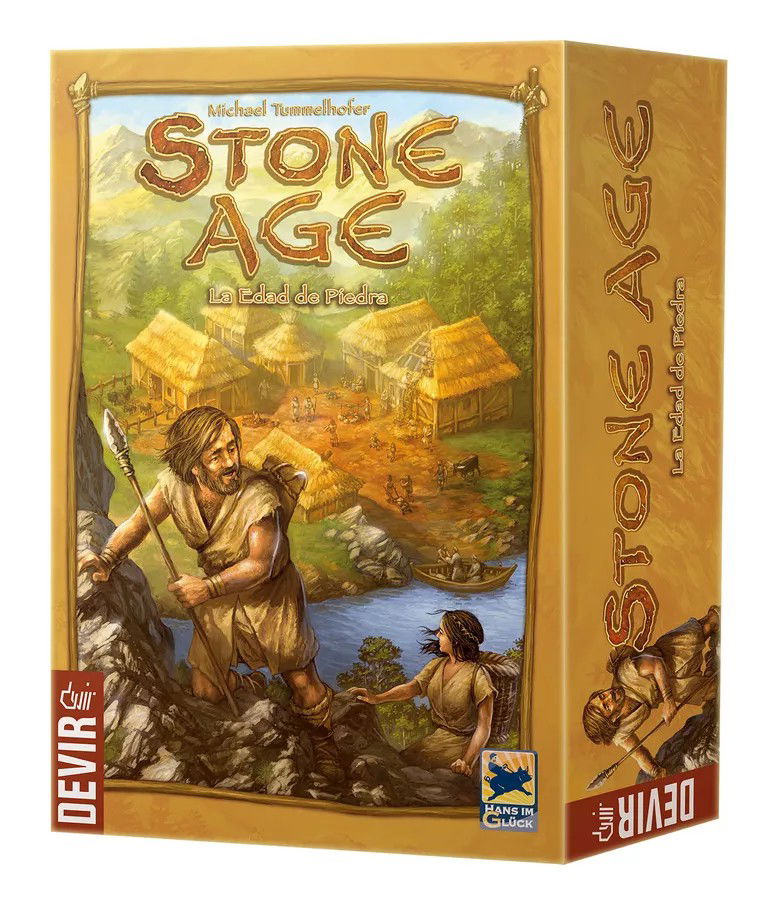
Stone Age takes place in prehistoric times, where players must guide their tribe by gathering resources, hunting, developing tools, and building villages. Dice-rolling simulates the unpredictability of primitive life, while worker placement requires constant strategic decisions.
Balancing luck and planning, it's an excellent introductory game to the Eurogame style. The aesthetic is welcoming, and the pace encourages gradual learning of the mechanics.
Game Mechanics
Worker placement; Resource gathering; Dice-rolls.
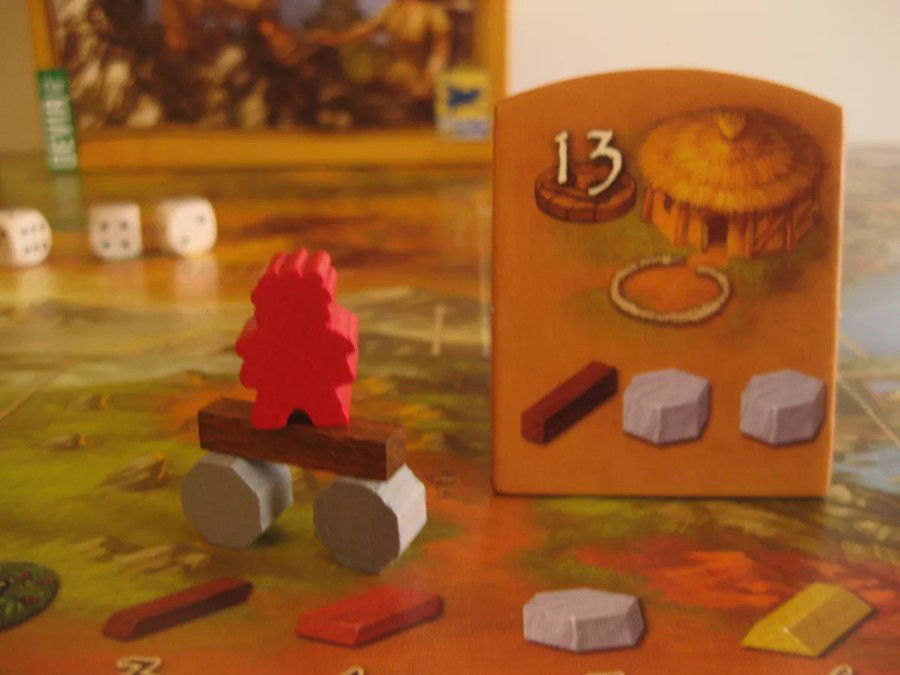
Pedagogical Tips
- Teaches basic resource collecting and economy;
- Centers on the theme of human development and technological evolution;
- Stimulates adaptive thinking and flexibility in situations of uncertainty.
Race for the Galaxy
- Era: Space-Travel Future
- 2 to 4 players (Expansions allow even more players)
- Average Time: 30-60 min
- Recommended Age: 12+
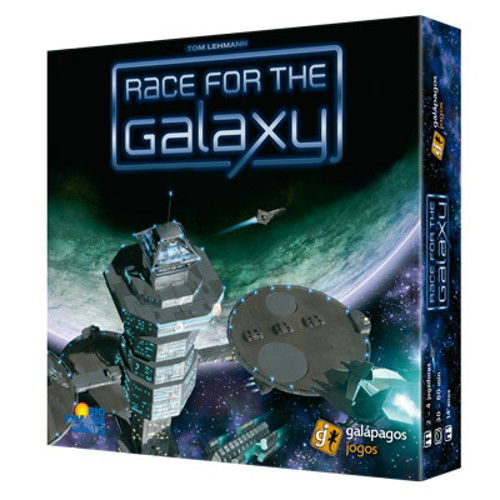
Race for the Galaxy is a civilization-in-space development game. Each player builds a unique galaxy by playing cards representing planets and technologies, seeking synergies between their choices and productive combinations.
With multiple paths to victory and icons that demand quick interpretation, the game rewards those who master the learning curve. With a high replayability, it's both a tactical and strategic challenge—and you can check out some tips here: Link
Game Mechanics
Engine and Production building; Hand management; Simultaneous actions.
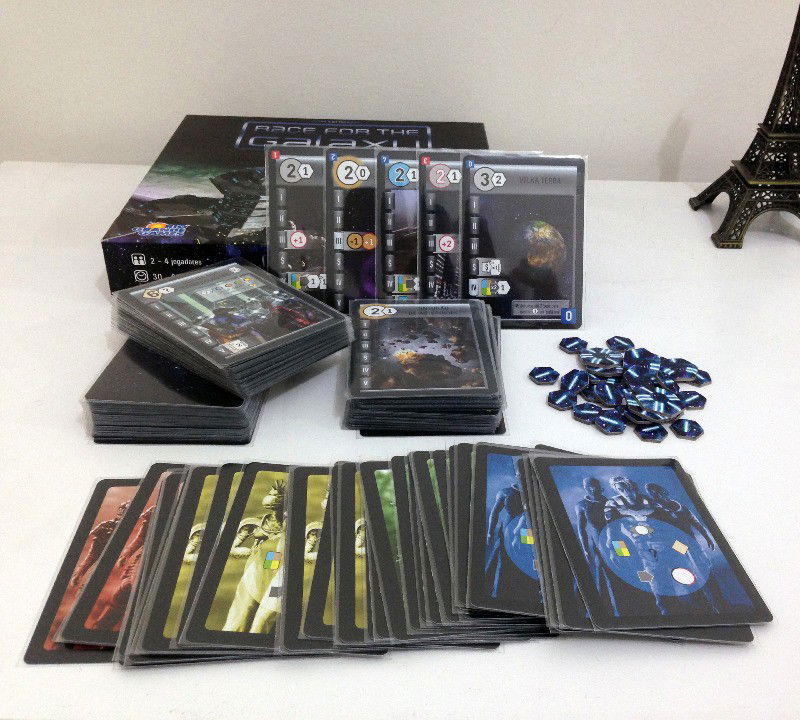
Pedagogical Tips
- Stimulates reading and identifying icons and symbols;
- Teaches concepts of production, specialization, and trading;
- Encourages analysis and long-term planning.
Blue Moon City
- Era: Post-War Fantasy
- 2 to 4 players
- Average Time: 45-60 min
- Recommended Age: 10+
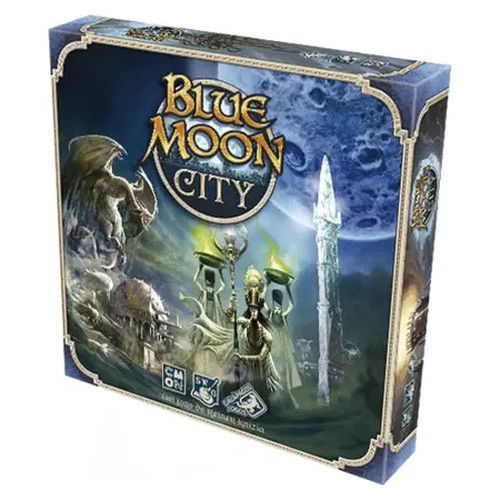
The game is set in the Blue Moon universe, where players collaborate and compete to rebuild a mythical city. Each card represents a race with special abilities, and victory points are converted into offerings to the Dragon, the supreme judge of the game.
Focusing on controlling spaces and card management, the game strikes a balance between direct interaction and individual development. Visually, the game is astounding, and the theme adds a mystical layer to the strategic bout.
Game Mechanics
Controlling spaces; Piece-by-piece building; Hand-Card management.
Pedagogical Tips
- Encourages teamwork and strategy;
- Teaches about constant changes in urban areas;
- Touches upon themes of mythology.
Citadels
- Era: Fictional Middle-Ages
- 2 to 8 players
- Average Time: 30-60 min
- Recommended Age: 10+
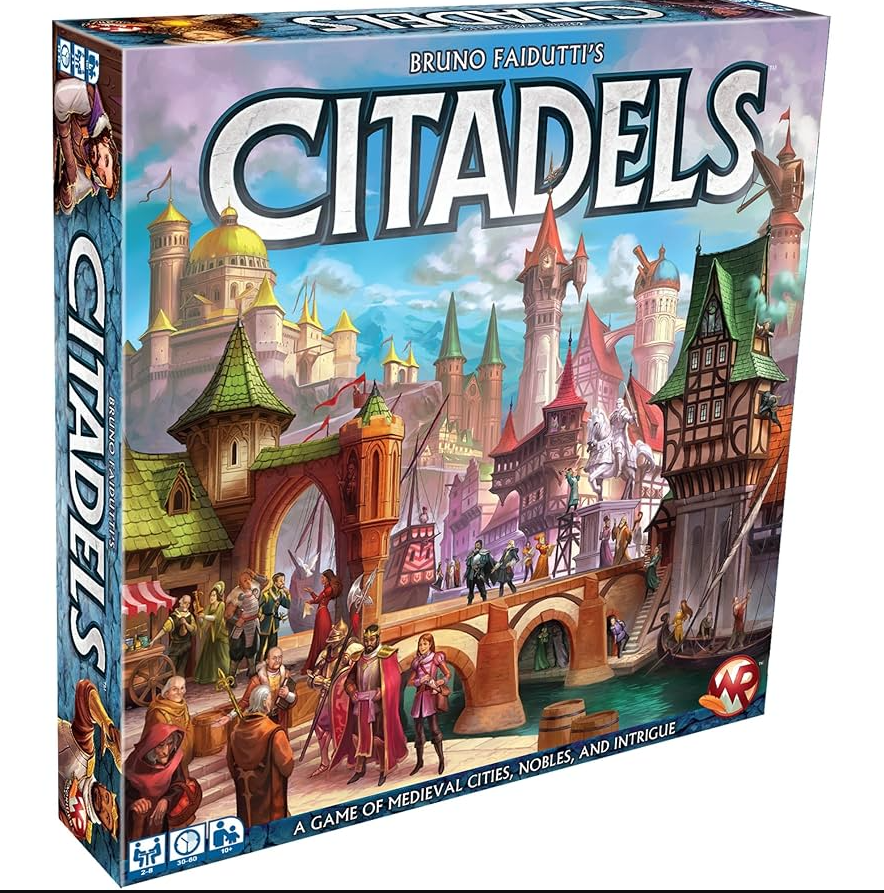
In Citadels, players take on the role of medieval characters (such as the King, the Assassin, or the Thief) to develop districts and manipulate the outcomes. Alternating characters each round ensures variability and intrigue, which makes bluffing a powerful tool.
Combining city building and direct interaction, the game is ideal for groups that enjoy drama and plot twists. Knowing when to build and when to stop an opponent are fundamental to succeed.
Game Mechanics
Hidden roles; Tableau building; Bluff.
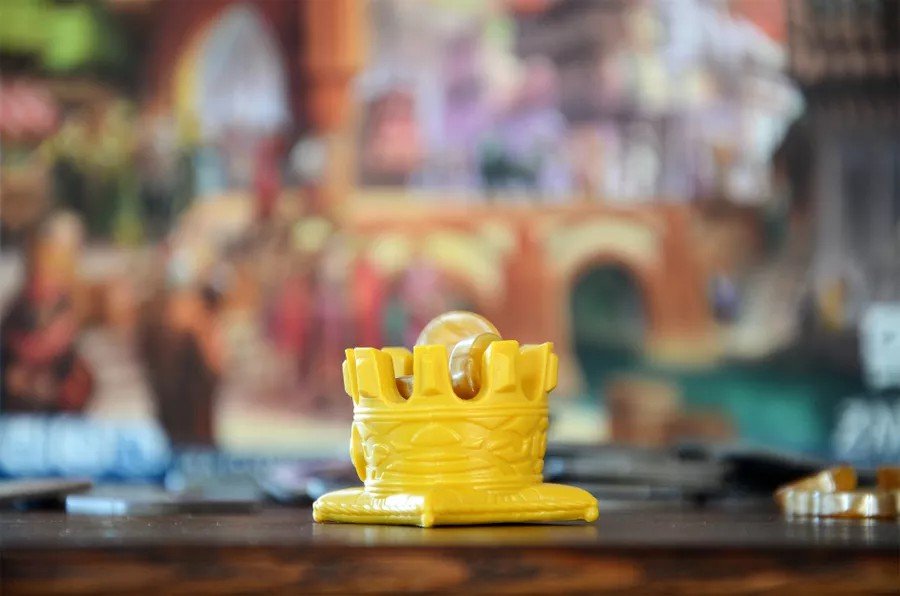
Pedagogical Tips
- Teaches social roleplaying and reasoning;
- Encourages planning against uncertainties;
- Explore themes of hyerarchy, intrigue, and political power.
7 Wonders
- Era: Classical period
- 3 to 7 players
- Average Time: 30 min
- Recommended Age: 10+
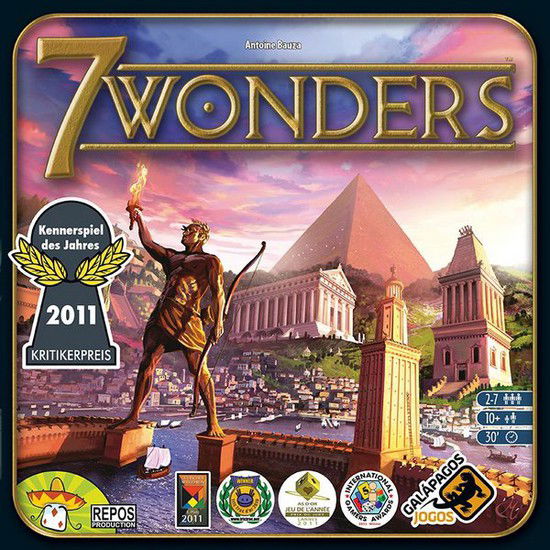
7 Wonders is an award-winning civilization-building game, where each player leads an ancient-world nation. Through draft mechanics, players build military, commercial, and scientific structures, in addition to the game's eponymous Wonders.
Fast-paced, visually striking, and with extensive strategic depth, it's a classic game that works well with any number of players thanks to its elegant design.
Game Mechanics
Card Drafting; Civilization-building; Gathering sets.
Pedagogical Tips
- Teaches historical concepts of the classic period, and cultural context of ancient civilizations;
- Stimulates medium-term planning through multiple paths to victory;
- Encourages interpretation of symbols and complex effects.
Conclusion
City-building games combine strategy, creativity, and management, all into rich experiences. By planning streets, managing resources, or leading a tribe, players live through the challenges of building something that'll last ages, and in the process encourage critical thinking and collaborative work. Imagine how good it can be for a child!
If you're looking for games that are both fun and enriching, this list offers great options to immerse yourself in the world of creation and social development.
Have you played any of these games? Which is your favorite? Leave a comment below and share your experiences!








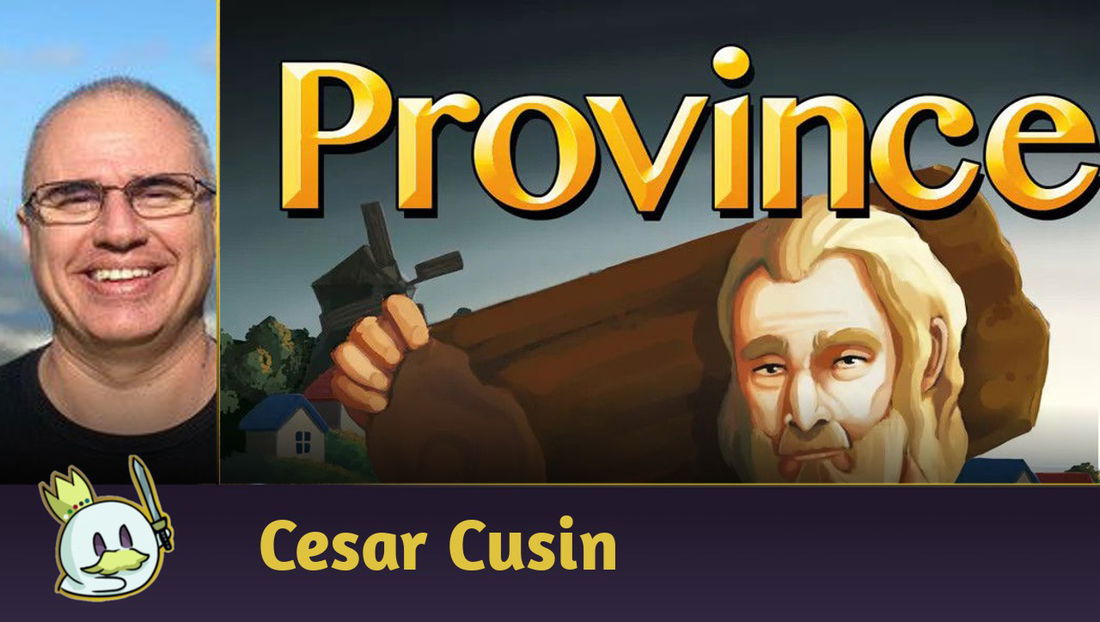




— Comentarios 0
, Reacciones 1
Se el primero en comentar